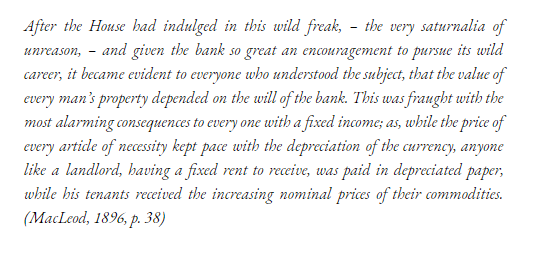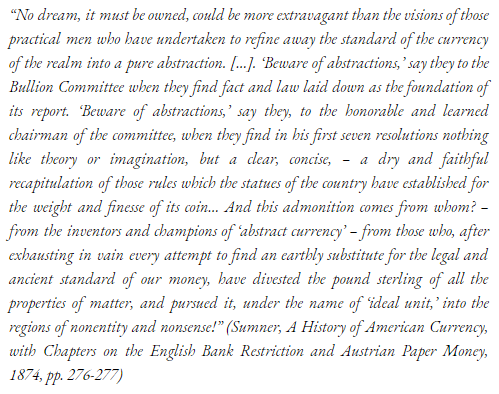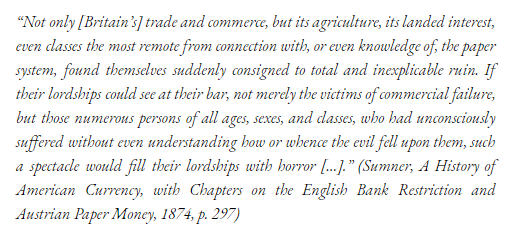1.) The fourth chapter of 'Money Dethroned - A Journey through Ashes', deals with the British Restriction of 1797 - a much more interesting episode than its boring name would have you think. The Napoleonic Wars prompted the suspension of free conversion of paper money into gold.
2.) It was promised, of course, to be of temporary character, with an initial time frame of a month and a half. It lasted a full generation. The episode was investigated by William Graham Sumner in late 19th c, simply due to American inflationists praising it as a success story.
3.) Looking at accounts from contemporary British lords, that appears far from the truth. The suspension led to paper declining up to 20% against gold - something deemed near unimaginable since the paper was of the Honorable Bank of England. Contracts were thrown into disorder.
4.) A committee was formed to investigate "the high price of gold bullion" when it in fact was the paper that had depreciated. The report of the committee describes well the effects of Gresham's Law, and counters many stupid monetary fallacies still alive today.
5.) So what about the British economy? Did it happily thrive under the inflation? Henry Dunning MacLeod, who coined the term 'Gresham's Law', wrote forebodingly:
6.) So you can imagine then, that when The Year Without Summer greeted Britain after the eruption of Mount Tambora in Indonesia, things were about to get worse. The Corn Laws set to work in causing needless hunger. A contemporary writer speaks of the "golden days of anti-Ceres".
7.) Inflationist interests - the supporters of "abstract currency", had got the country in to the non-abstract troubles that always come from the interference with the money. Future Prime Minister of the United Kingdom George Canning criticized them harshly in a speech.
8.) After much hardships, British politicians voted in favor of returning to specie redemption. Some are recorded as having been ashamed of their initial support of the suspension. The picture Lord Grenville (former supporter) paints is not pretty, and not grounds for boasting:
9.) Britain resumed gold redemption in 1821. The episode, I think, shows how the central planning of money always leads to unintended consequences. Assignats had just imploded across the straits - Britain managed to steer the ship away from a similar fate by allowing redemption.

 Read on Twitter
Read on Twitter






